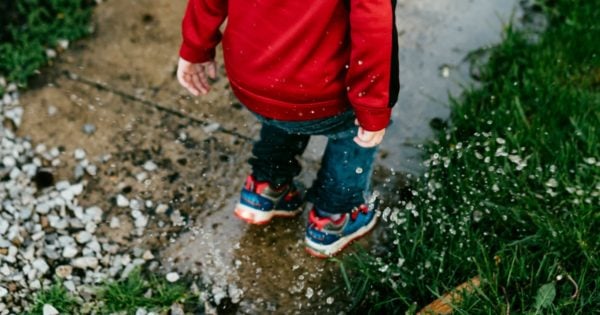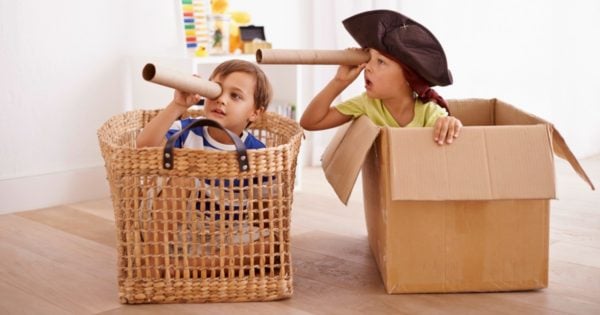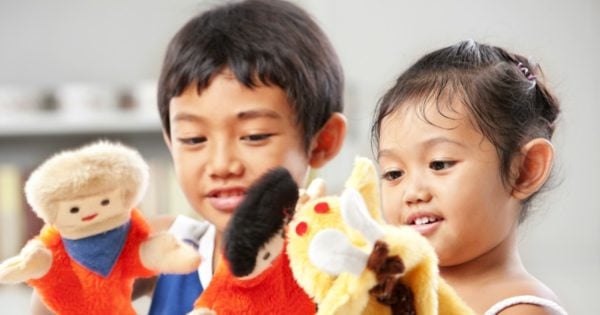

Their first crawl. Their first steps. The quality of their writing. The type of books they can read. As parents we tend to focus on all the major developmental goals. Which is totally fine (and normal). Sometimes though, it feels like we are unintentionally wanting our little ones to grow up faster – at least that is how it feels to me.
I get so excited when I get to tick a box off the development app I installed on my phone for my child. While it tends to focus on all the skills she is rapidly learning, the app seems to miss out on the stuff that makes a childhood a childhood.
You know, the magic. The pretend. The imagination.
The stuff that leads you to think creatively as you grow up. It might start out as you genuinely believing that your teddies can talk to you (right now, that’s where my little one is at) and eventually result in thinking up stories and creating art pieces. So I scrolled through the mummy forums and these are some activities that I found to help keep that imagination alive (especially in a time where us parents are competing with iPads and Xbox).
1. Get them outdoors.
Twigs and mud are nobody’s friends. Twigs are boring. Mud gets everywhere. One way to get your kids outdoors is to create a little space in the garden for them. One example is a fairy garden. All you really need is a little corner space with some potted flowers and plants, a couple of little ornaments from a two-dollar shop (think little windmills, plastic mushrooms, fairies, etc.), and you’re good to go.




Top Comments
I liked your idea about the fairy garden and most others in that list, but "twigs and mud are nobody’s friends. Twigs are boring" did not look like a good start. Twigs and stones during our discoveries in the forests and parks were always important imagination triggers for my lil daughter. The twigs told her stories of their parent trees and how they related to each other in looks, color, bark; I made some of the stones (the milky looking smooth ones) into unicorn droppings from the night transforming in daylight, she spun off from that, etc.
What a great article. Great parenting is about sometimes being in the moment with your children. Building cubby houses, using your bed as a boat to get away from 'sharks'. Using a dustpan to quickly put the lego away before a lego eating monster gets it. Playing with them is building happiness and empathy and co=operation together.